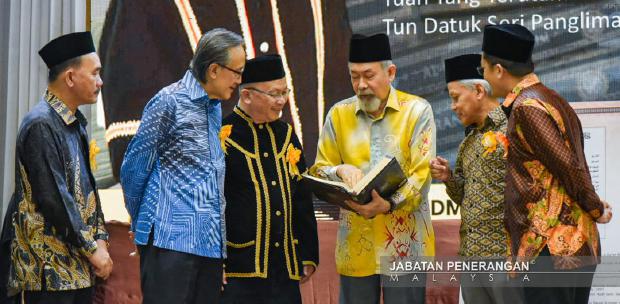WHEN this article was being written, the news on the resignation of the Lebanese Prime Minister, Hassan Diab, just broke, nearly a week after a devastating explosion in Beirut that stirred public outrage and spurred a string of ministers to step down.
It was quoted in major newspapers that "Diab announced the resignation of the entire cabinet in a televised evening address to the nation", characterising the detonation of highly explosive material warehoused at the capital's port as being "the result of endemic corruption". The point here is corruption.
Likewise, in our own country, for the last few weeks, we were bombarded with the news of several prominent people being charged with bribery and corruption. While they are all innocent until proven guilty, however, bribery and corruption have now slowly become a cancer in our society.
Most recently, we also heard of illegal gambling activities and smuggled cigarettes in one of the districts in Selangor, operating for years without intervention from enforcement agencies or local council in spite of complaints allegedly made by residents.
At the time of writing, three officers from the council concerned were arrested for allegedly having taken bribes ranging from RM300 to RM3,500 per month.
This has posed a serious question on the integrity of those people in power who were entrusted to uphold the laws of the country; how could they close their eyes to the evils happening before them, unless they were getting something out of their silence and inaction?
Bucking the perception is Johor police chief Datuk Ayob Khan Mydin Pitchay who received praise for his bravery in fighting corruption and for being a no-nonsense type of policeman. We need more enforcement officers like him.
Similarly, the influx of illegal immigrants in the country, which was estimated, as of September last year, to be more than four million people, was partly due to corrupt practices of those patrolling our borders.
The government should perhaps launch serious campaign programmes, tighten laws and enforcement to curb bribery, corruption and abuse of power. They destroy the entire integrity structure of an organisation, not just the individuals concerned.
The temptation to offer or accept bribes, commit corruption and abuse of power is enormous.
As the saying goes, "Every man has his price".
When you are in a dire state and need help, you tend to give bribes while when you are in position to make decisions, you tend to accept bribes and resort to abuse of power.
The only armour that would prevent you from accepting or giving bribes and abusing power is not laws, or knowledge of its prohibition alone, but rather the strength of your own spiritual inner self and strong belief in God.
A conviction that He sees you and eventually, all your actions, whether good or evil, will be accountable before Him on the Day of Judgement. In Islamic tradition, this is called the quality of your spiritual heart.
Whenever a man commits a sin, his spiritual heart will be darkened and if he repents, then it will be erased. Laws will not effectively prevent people from committing bribery or corruption,though it can help minimise the cases, for they will always find loopholes or weaknesses in the laws to evade from being charged for doing something "illegal".
Most people who indulged in bribery and corruption were fully aware and had knowledge of the fact that what they did was legally wrong and a crime, yet they still did it. Even worse when the acts were committed by the so-called "religious" people who knew very well of its prohibitions in Islam from the various Qur'anic verses and Prophetic traditions.
In fact, Islam not only stipulates the prohibition of taking bribery but even accepting gifts; for people in position could also be prohibited if the gifts are given related to the positions as in the case of al-Latbiyyah.
Then, what is the solution?
Apart from inculcating knowledge and strengthening the laws, ultimately the best solution is to strengthen our own faith (iman) and cleanse our spiritual hearts by continuously doing good actions and avoiding evil deeds, making remembrance of Allah the Almighty (zikir), seeking His forgiveness (istighfar) and reflecting that one day we shall meet God in the Hereafter to be accountable for what we have done in this world.
The writer is Senior Fellow, Centre for the Study of Shariah, Law and Politics, Institute of Islamic Understanding Islam Malaysia (IKIM)





